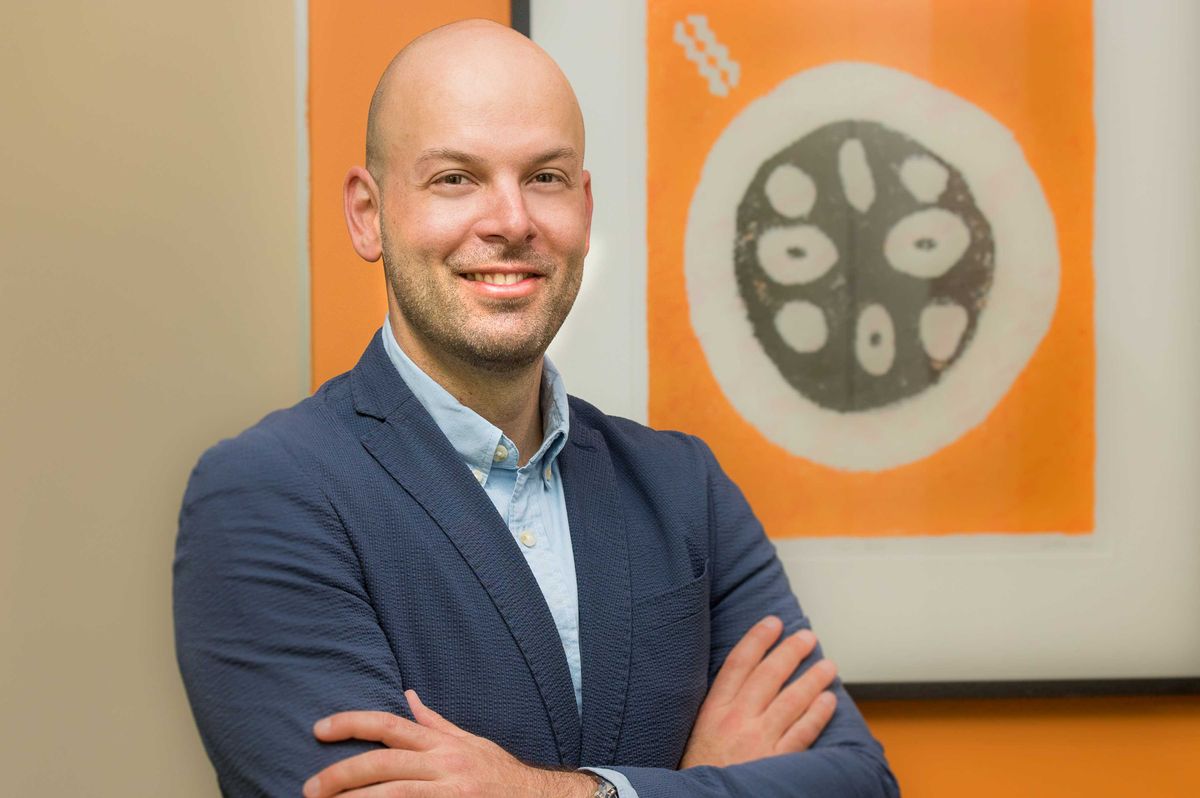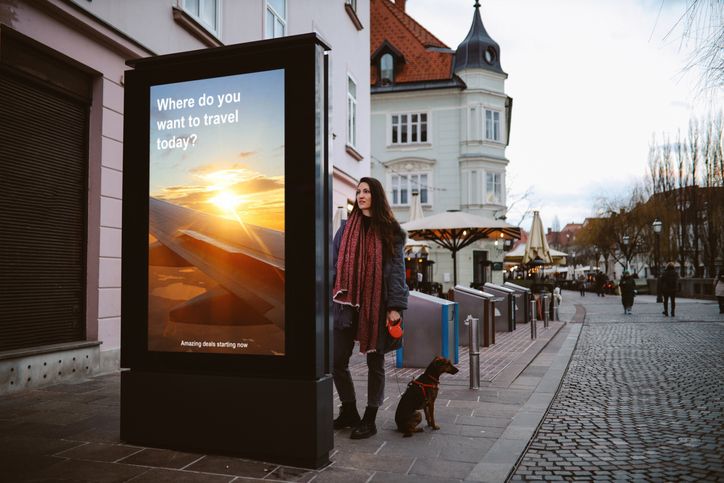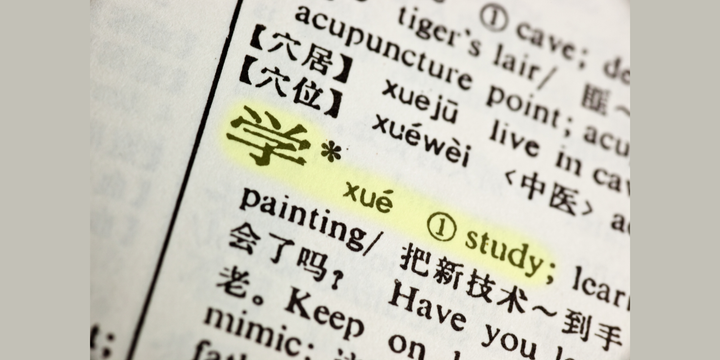What international business academics think about when they think about business
Have skin in the game, walk the talk, travel authentically—just some of the ways international business scholar and global ‘outsider’ Matt Rašković says academics can grapple with global issues, help businesses forge cross-cultural relationships, and tackle some of society’s big challenges.

- Matevž (Matt) Rašković is an Associate Professor of International Business & Strategy at Auckland University of Technology (AUT) and visiting professor at Zhejiang University in China
- The Context: Asia-Pacific interviewed him in the first in a series on how academia helps non-academics engage with the Asia-Pacific
- We wanted to find out what international business research is and how it supports ‘real-life’ cross-border engagement, whether in business or larger social issues
- Matt recently published research about how Taiwanese high-performing businesses manage the value of renqing—or reciprocity imbued with empathy—in their business relationships
- We talked about how academics and businesses can achieve a deeper understanding of other cultures, and why this goal is important
Matt Rašković is more than qualified to give us insight into the world of the international business academic: his research spans many aspects of international business, from Central and Eastern Europe to East Asia. He holds visiting professor positions in China and Slovenia, is currently Vice-President Administration at the Academy of International Business (the world's biggest community of international business scholars).
He also contributes enormously to New Zealand businesses wanting to engage with Asia, including through work with the North Asia Centre of Asia-Pacific Excellence and the Southeast Asia Centre of Asia-Pacific Excellence.
Matt is a prolific contributor to academic and public discussions, and among his many interests is storytelling’s role in business. Before our interview, he moderated an international webinar on storytelling, which also featured the New Zealand Story’s David Downs. There he noted the inspiration he gets from Albert Einstein’s quote, “I have no special talents, I’m only passionately curious.’ So, we began the interview with this question: what is Matt Rašković passionately curious about?
“That is a dangerous question to ask an academic, as we can go on and on” he jokes, before promising to be concise and to the point. After deliberation, he arrives at a succinct answer. It doubles as a statement on why international business is more than we might expect—more than about efficiency and profit, and more important to understanding the global human condition.
“I'm passionately curious about business that happens across borders and things connected to that, especially with a societal or policy component. That would be my sweet spot—the social dimensions of international business which are important for us as humanity and as a global society. I know it sounds corny, but ‘wicked problems’ which involve diverse stakeholders, like climate change, corruption, and populism. In terms of firms, I tend to focus more on their non-market strategies.”
In fact, these are no longer seen as feel-good topics, but increasingly as core business issues, notes Matt.
“We used to disregard non-market aspects, but now many multinational companies and even SMEs realize that such risks significantly affect the way business is done. We have finally also recognised that international or domestic business has been part of the problem in propagating many of the wicked problems we face as a global society.”
Yet, even if businesses are alert to these issues, it also matters whether and how they can break out of their traditional operational modes and respond. Matt sees that businesses are indeed seeking deeper answers, while consumers are demanding them to change.
“Many industries are reaching an inflection point, where enough big companies, and SMEs, domestically and globally are waking up to the concept of what Ranjay Gulati of Harvard Business School would call deep purpose.” Matt is referring to the idea that companies have a moral responsibility to better society, through which they can create value both for themselves and the people and businesses depending on them. Gulati discusses this in his book Deep Purpose: The Heart and Soul of High-Performance Companies.
“For business, there needs to be more to the story than serving our own agenda and just making sure the shareholders are happy. Businesses are realising they are connected to society and have been part of global problems that have festered and escalated to become so-called wicked problems. Labour exploitation, modern slavery, environmental issues, political risks, and so on. As part of the problem, businesses need to engage at a deeper level with the root causes when it comes to purpose."
As an economic sociologist by training, Matt sees the market as a space where "social relationships are produced and reproduced, where actors work within existing institutional structures, but also exercise agency.”
For Matt, market interaction with purpose is akin to a democratic process, as he likes to tell his students.
“We get to vote every day with our wallets: when we buy products or choose organisations to support or work for. For me, that is the spirit of democracy in action every day.”
Matt’s business students are a source of hope for him; he sees the current generations of students as more engaged than previous generations. “They care, they express themselves, they take a stance. They care where the products come from, how they are made and what the companies behind them do. They understand that, if they band together, they can be a powerful force that companies and even governments will pay attention to.”
Clearly, the times are changing. But how does international business research help firms swim with the tide rather than sink like a stone? Clearly, responds Matt, if you take any business, policy or societal problem, you would be hard pressed not to find an international element. Even local businesses, for example, source supplies internationally or employ immigrants or expatriates. For all of this, you need to understand the international context.
Putting international business in context
This brings us to a key word in international business academic talk: context.
International business is all about context, says Matt: the fact that business is a social phenomenon, that markets don't just drop from the sky. For him, it's not just supply and demand intersecting.
"Markets are created by people and organisations from different backgrounds. We often say that culture is like a software of the mind. Doing business with someone from, say, China, is like a laptop operating on Windows connecting with a MacBook; you need to figure out the compatibility.”
Researching these ideas is all very well, but how can we lift this context from the page and into the plans of business leaders? After all, in one way or another, academia predicted the challenges of recent years—pandemics, supply chain vulnerabilities, populist politics—and said, ‘be prepared’. Yet most of us were caught on the back foot.
To this question, Matt feels the need to be “a little bit critical of academia itself,” referring as he does so to the proverbial ivory tower in which academics are locked in a game of ‘publish or perish.’ As a response to these criticisms, he lays down a challenge for academia.
“We need to keep in sight what academia is supposed to be: the consciousness of society. Get back in touch with the ground and remember how to speak to the policymakers and communities.”
This includes the communities of places they visit, he adds.
“We need to break out of our privileged positions. You won’t gain real insight in the normal course of flying in, staying in a five-star hotel, sitting through air-conditioned meetings, doing a short one-hour stroll and hopping on a plane to go back.”

Skin in the game
One way for academia to reconnect with the business world is to have more “skin in the game,” believes Matt.
“We need to not only hear conversations in society and business, but know how to join in. Often our language is very abstract and quite complex. If we spend time with managers and customers and suppliers, we might realise that we're looking at the same thing from different perspectives.”
Even with this critique, Matt views international business academics as relatively more equipped to connect with industry than many other disciplines. But he thinks they could improve at engaging with international entrepreneurship and SMEs, and services, rather than the traditional focus on multinationals and manufacturers engaged in global value chains or part of so-called global factories.
He is also “a huge proponent of the case study method,” to engage with leaders and introduce real issues into the classroom.
“We learn so much as academics when you have the decision makers in the classroom, particularly through executive education where you discuss issues and gain insight into their decision-making processes.”
Returning to the idea of ‘skin in the game’ he also advocates for business academics to try their own hand at commercial enterprise—just as he has his own consultancy business.
“Academics are in the privileged position of being paid to think and look at problems from different angles. In business you need to be quick and devise solutions without the luxury of spending weeks or months or years studying the same problem, asking questions from different perspectives and drilling deeper.”
This was the main reason for his move to New Zealand. “I said to myself, ‘if I am to be a serious international business scholar, I have to walk the talk, I have to go through the whole process of relocating to a foreign country’. I need to step out of my comfort zone.”
How to understand a place from the outside
How does a person “born in a country that no longer exists” (as Matt describes himself) come to be someone that focusses on international business and China, while based in New Zealand? The answer is a story of an ‘outsider’ following his passionate curiosity.
“I was born in Yugoslavia, a socialist country in Eastern Europe established after World War II, which disintegrated horribly in the early 1990s by failing to manage diversity and uphold a supranational identity. That makes me somewhat less sentimental about countries and a bit critical of nation states and governments.” His birthplace is now known as Slovenia, a pocket-sized country of two million people, which became independent in 1991, and “is the only country in the world which has the word ‘love’ in its name,” adds Matt.

Matt arrived in New Zealand in 2018. “I literally came with two suitcases and didn't know a single person in New Zealand. Looking back, what was I thinking! But it somehow worked out. And I am a much, much better academic for it. In the classroom, I can talk about expatriation and human resource issues. Without that experience, it's much harder.”
For Matt, in-country experience is also important to understanding the culture and perspectives of any market.
“It's hard to give a credible assessment of a situation if you have never been to and actually lived, say, in the United States or China, and at least have some level of understanding of the culture and the language. I'm surprised how many so-called experts on China don't speak a word of Mandarin.”
Language is, after all, more than a communication tool, but a way of understanding the world, he says.
As for Matt’s own path to expertise, he says it was “serendipity” that led this curious Slovenian into China. Upon returning home from Harvard University as a PhD exchange student in 2011, he remembers being pulled into the office of his university’s international affairs director. She informed him that they were setting up a business-oriented Confucius Institute at the University of Ljubljana. “I remarked that I didn’t think we had a single expert on China. “Funny, you should say so,” she replied, “because in your absence, you have been chosen to develop and deliver a course on how to do business in China.”
Having no knowledge or understanding of China at that time, Matt felt daunted about fulfilling the responsibility with any credibility. But his curiosity found a way, beginning by reading profusely—every possible book he could find on China. He developed opening and concluding lectures to set the context and found as many industry people as possible to be guest lectures in between. “It was quite innovative, something quite different, particularly in Eastern Europe where our focus had always been more towards the Balkans and perhaps Russia.”
From there, Matt upskilled himself. He went to Shanghai for a year and picked up basic street Mandarin, then travelled back and forth, learning as much as possible, finding there was always more to learn.
“Even having spent more than 10 years studying China, it wasn't until I became part of a Chinese family [his former partner being Chinese] and in some ways part of the ‘in-group’, that I understood new things that you could never understand as an outsider, no matter how much time you spent, how much you read, how much you travelled, how much you engaged. That goes back to skin in the game. Spending time in China, interacting, having Chinese friends. But I still wouldn't consider myself an expert. I would say that I'm informed curious. I'll put it that way.”
While teaching, Matt also saw a need for a textbook for European business students with no knowledge of China, so he wrote one with the former Dean of Hong Kong Polytechnic University Business School, Professor Howard A. Davies. The 2017 book Understanding a Changing China: Key Issues for Business remains popular as an introductory reader into 'understanding' China.
From understanding culture to creating a ‘third space’
Matt has since taught many students and published research papers on business in East Asian markets, including with co-authors from China and Taiwan. We talk about the challenges of cross-cultural research, or for anyone wanting to understand a culturally different business context.
“The first thing is, culture is such a big, fuzzy, ambiguous concept. In fact, Geert Hofstede, one of the big names in cross-cultural research, calls it an ‘artificial concept’. Many things get lumped under culture. We tend to think of culture as national culture. For example, Korean culture versus New Zealand culture. There is debate around should we study culture? How do we study culture? At what level?”
Matt breaks the challenge into several levels.
First, narrow the research focus from broad ideas, such as ‘Asia’, to more specific communities. Asia’s global cities—such as Hong Kong, Shanghai, Singapore, Kuala Lumpur—all have their own distinct cultures. “To my students I say, for example, don’t think of China as just a country. Think of China as a kind of ‘United States of China’. There is incredible diversity and heterogeneity.”
Second is to choose a lens through which to make sense of this diversity.
“One useful way to understand Asia, or other areas such as Latin America, is through the lens of urbanization, urban landscapes, and the hierarchies of cities.”
Another lens is the generational perspective. “Someone born in Shanghai who has lived there their whole life, may live a life completely different to someone in the same apartment complex but from a different generation—it’s like parallel worlds. The nature and speed of change, particularly in Asia, has been unprecedented. In many ways, China jumped from 19th century to 21stcentury in a matter of one or two generations.”
Next, is the dilemma of comparing cultures. Matt describes two approaches to cross-cultural studies: an outsider’s comparative, or an etic, approach, and an insider’s immersive, or an emic, approach, each with its own pros and cons.
“Comparison is an outsider's perspective. We benchmark and compare; we're looking at differences. The danger with that is that we're organising things as an in-group and an out-group—us versus them, and assuming that our way is the natural, correct way. Westerners particularly tend to do that.”
Matt feels he may have a small advantage in avoiding such traps, as a Slovenian in New Zealand, teaching students from around the world, about countries such as China. “I am an outsider-outsider, that’s my ‘comparative advantage’. As an East European, I am also able to separate business and politics or everyday life and political ideology”.
Immersing yourself in a culture for the purpose of understanding, on the other hand, involves no comparisons or benchmarks. “You're not making assumptions; you're not making judgments. You are there to experience and understand.”
Many business people, Matt suggests, tend to fall into the comparative frame of mind, making judgments along the way.
“They are looking at distance, diversity and deviance, because these things always mean higher costs, and so people want to identify and control these differences.”
As an alternative means to managing cross-border differences, Matt returns to the idea of skin in the game.
“You need to immerse yourself in the culture. And with the world being as diverse as it is now, including New Zealand, it's about creating a third space. If we're doing business together, if we're interacting, it is creating that third space where you and I are both on equal footing. That is not the dominance of your culture, nor the dominance of my culture, but we've created this third space that works for us, in which we can do business together.”
Renqing – reciprocity with empathy
Third spaces are especially important in so-called ‘tight cultures,’ governed by strict relational norms, and markets where relationships are critically important to business. It’s also where academic insight can really help. Naturally, people from different markets will bring to a partnership their own values about how business relationships should work. The third space is where partners can reconcile these values and forge a relationship that works for both sides.
In markets with strong Chinese cultures, these values will most likely include renqing.

Renqing is related to the idea of reciprocity, but it’s much more than that, explains Matt, who recently published a research paper on how Taiwanese high-performing businesses manage renqing in their business relationship portfolios at an organisational level.
“Reciprocity is important everywhere—think of quid pro quo. But renqing is hard to translate. One way to describe it is a reciprocal exchange of favours imbued with empathy. Just saying ‘favours’ doesn't do it justice because it removes that emotional, empathic charge.”
Renqing is part of several relationship values fundamental to relationships in Chinese culture. Of these, guanxi is perhaps the most familiar to non-Chinese. Guanxi is variously described as a person’s network of social and business relationships, which are imbued with trust and mutual obligation.
Renqing forms the reciprocity element of these relationships and embodies the active component of guanxi. It is not transactional though—acts of renqing are conducted within the full context of a relationship over time—as expressed by a quote in Matt’s paper:
“If you have received a drop of beneficence from other people you should return to them a fountain of beneficence (…) The debt of renqing is very difficult to return” (cited in another paper on renqing in business to business purchasing intentions)

While person-to-person renqing is well-studied, there is less research helping businesses understand how and why an organisation might engage renqing in its relationship portfolios.
Matt provides answers to this question in his paper Managing interorganizational renqing practices in high-performance organizations in Taiwan: the when, where and how of renqing giving, written with co-authors including former colleague at Victoria University of Wellington, Dr Yi-Te Chiu.
The researchers interviewed leaders from several high-performing businesses, asking them when, where and how they used renqing as an organisation in their business relationships globally. Through these interviews, they found nuanced differences in how businesses manage renqing, compared to how this value operates in person-to-person relationships.
“Renqing is not calculative reciprocity. Our research showed that organisations manage reciprocity in different ways. One way is to mitigate against risk, or as a form of insurance. You're building goodwill and a safety net, in times of trouble and in times of need. Companies also invest in renqing long-term.”
Matt hopes the research will help organisations entering Taiwan and similar markets, to plan and develop their relationships strategically, and to appreciate the nuances involved.
For example, they found that unlike at the person-to-person level, the notion of renqing as a ‘debt’ to be repaid, is not common at the interorganizational level – at least not in market leading organizations. But even so, renqing gives rise to significant expectations.
“Businesses should be mindful of the nature of the reciprocity. Sometimes you are expected to reciprocate because you are in a position of privilege. A large organization might be expected to show reciprocity towards smaller organisations. Especially in times of need. It’s easy to be reciprocal when business is doing well, but reciprocity gets tested in times of adversity and turbulence. It’s such a nuanced concept, imbued with emotions and morality.”
* Quotes in this article may have been edited for clarity and brevity. The views expressed in this article do not necessarily represent the views of the Centres of Asia-Pacific Excellence.
Thanks for reading! If you've made it this far you must be keen! We would love to hear about you and what you are looking for, via our short survey.



